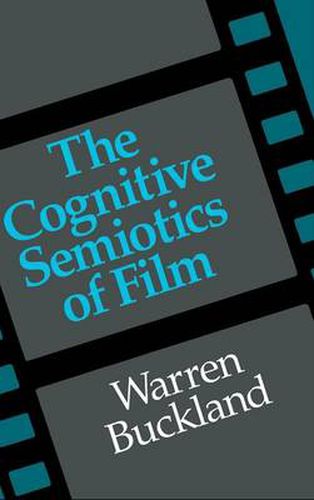Readings Newsletter
Become a Readings Member to make your shopping experience even easier.
Sign in or sign up for free!
You’re not far away from qualifying for FREE standard shipping within Australia
You’ve qualified for FREE standard shipping within Australia
The cart is loading…






In The Cognitive Semiotics of Film, Warren Buckland argues that the conflict between cognitive film theory and contemporary film theory is unproductive. Examining and developing the work of ‘cognitive film semiotics’, a neglected branch of film theory that combines the insights of cognitive science with those of linguistics and semiotics, he investigates Michel Colin’s cognitive semantic theory of film; Francesco Casetti and Christian Metz’s theories of film enunciation; Roger Odin’s cognitive-pragmatic film theory; and Michel Colin and Dominique Chateau’s cognitive studies of film syntax, which are viewed within the framework of Noam Chomsky’s transformational generative grammar. Presenting a survey of cognitive film semiotics, this study also reevaluates the film semiotics of the 1960s, highlights the weaknesses of American cognitive film theory, and challenges the move toward ‘post-theory’ in film studies.
$9.00 standard shipping within Australia
FREE standard shipping within Australia for orders over $100.00
Express & International shipping calculated at checkout
In The Cognitive Semiotics of Film, Warren Buckland argues that the conflict between cognitive film theory and contemporary film theory is unproductive. Examining and developing the work of ‘cognitive film semiotics’, a neglected branch of film theory that combines the insights of cognitive science with those of linguistics and semiotics, he investigates Michel Colin’s cognitive semantic theory of film; Francesco Casetti and Christian Metz’s theories of film enunciation; Roger Odin’s cognitive-pragmatic film theory; and Michel Colin and Dominique Chateau’s cognitive studies of film syntax, which are viewed within the framework of Noam Chomsky’s transformational generative grammar. Presenting a survey of cognitive film semiotics, this study also reevaluates the film semiotics of the 1960s, highlights the weaknesses of American cognitive film theory, and challenges the move toward ‘post-theory’ in film studies.